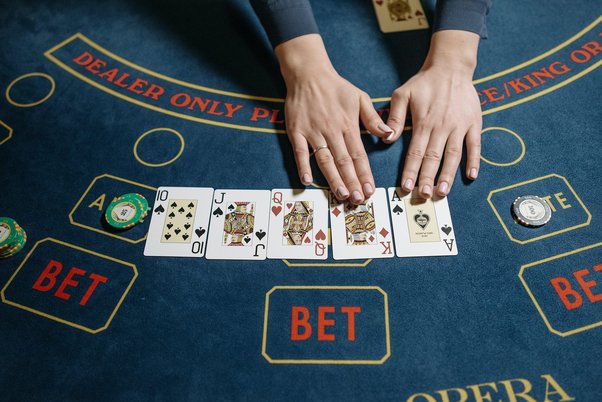
The Psychology of Luck: How Casinos Use Behavioral Science to Their Advantage
Casinos have long happened masters of creating an atmosphere that fosters a sense of chance, excitement, and the allure of important wins. Beyond the flashing lights and ringing place machines lies a sophisticated understanding of human medicine. In this article, we’ll investigate the fascinating globe of the psychology of chance and how casinos strategically use social psychology to their advantage.
Creating a Sense of Anticipation
Casinos understand that forethought is a powerful sentiment. The thrill of waiting for the opening reels to stop, the tension at the card game table before the river calendar is revealed – these importance of uncertainty create a surge of enthusiasm that keeps players operating. The longer the forethought, the greater the poignant payoff when the consequence is finally told.
The Near-Win Effect
The psychology of the forthcoming-win is a psychological phenomenon that casinos exploit to excellent effect. Players are more likely to continue performing when they believe they happened close to triumphant, even if they didn’t really win. The flashing lights, congratulating sounds, and graphics that accompany forthcoming-wins on slot machines tap into the mind’s reward centers, creating a sense of achievement and encouraging persisted play.
The Illusion of Control
People have a natural bias to seek control over their atmosphere. Casinos capitalize on this by offering entertainment like video card game or certain types of place machines that allow performers to make resolutions, even though chance remains the main factor. The illusion of control leads performers to believe that their selections influence the outcome, making the knowledge more engaging and pleasing.

Cognitive Biases and Gambling
Cognitive biases are inherent patterns of thinking that can lead population to make senseless decisions. One such bias is the “gamester’s fallacy,” place players trust that past outcomes influence future results. For example, if a wheel of chance lands on black various times not curved, players might start depend on red, arrogant it’s “due.” Casinos subtly exploit these biases by forming an environment place players see patterns that don’t really exist.
Anchoring and Bet Sizes
Anchoring is a emotional concept where public rely densely on the first piece of information they encounter when making resolutions. In casinos, this manifests when performers base their bets on prior outcomes or the primary bet they placed. By subtly doing players’ offset points, casinos can manipulate bet sizes and hold players committed in the game.
Social Proof and Crowd Behavior
Humans are influenced for one behavior of remainder of something. The buzz and excitement on a casino floor conceive an environment of friendly proof – the plan that if others are from something and winning, before it’s worth performing. The presence of other performers winning strengthens the belief that chance is in the air, bright more people to cooperate.
The Allure of Comps and Rewards
Casinos use the psychology of rewards to hold players returning. Complimentary services, loyalty programs, and freebies tap into the idea of reciprocity – the impression that if you receive entity for free, you’re more inclined give back in return. These rewards improve the overall experience and augment the idea that luck act the player’s side.

The Impact of Emotions
Emotions play a meaningful role in betting behavior. Excitement, hope, and even the fear of gone out can cloud rational fate. Casinos are well aware of this and design their surroundings to evoke these emotions. The thrill of triumphant triggers the release of dopamine, a neurotransmitter guide pleasure, strengthening the desire to continue risking.
Loss Aversion and Chasing Losses
Loss aversion is the cognitive tendency to fear misfortunes more than to profit equivalent gains. This leads players to chase their losses, trusting that they can reverse their luck. Casinos learn this phenomenon and use it to maintain players committed, knowing that the affecting discomfort of losing maybe a powerful motivator to maintain playing.
Responsible Gambling Awareness
While casinos influence behavioral science to reinforce the gaming occurrence, responsible betting remains a preference. Many casinos incorporate measures to promote accountable play, such as self-expulsion programs and providing information about the risks of betting addiction. Balancing the incitement of luck accompanying responsible act is a delicate line that casinos endeavor to maintain.
In conclusion, the psychology of chance is a multifaceted field that casinos influence to create an enveloping and engaging wager environment. The understanding of forethought, cognitive biases, friendly influences, and emotional triggers all cause the carefully arrange experience that keeps performers coming back for more. By understanding these emotional strategies, performers can approach casino trick with a clearer knowledge of the influences at play and make conversant decisions about their wager experiences.





